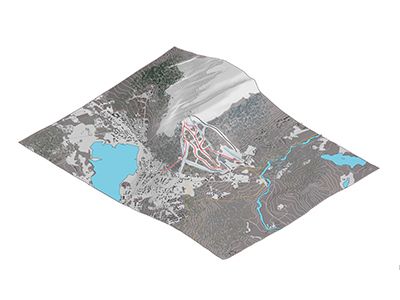Kursen fördjupar kunskaperna i representation med fokus på Stadens representationer och urbana representationsformer. I kursen används och utvecklas nya verktyg för att studera, hantera och bearbeta information som rör stadens processer, mönster och mångdimensionella strukturer. Fokus ligger på digitala tekniker.
A31REA Representation 3: Informationshantering och presentation 3,0 hp

Information per kursomgång
Information för HT 2026 Start 2026-08-24 programstuderande
- Studielokalisering
KTH Campus
- Varaktighet
- 2026-08-24 - 2027-01-11
- Perioder
HT 2026: P1 (1 hp), P2 (2 hp)
- Studietakt
10%
- Anmälningskod
50128
- Undervisningsform
Normal Dagtid
- Undervisningsspråk
Svenska
- Kurs-PM
- Kurs-PM är inte publicerat
- Antal platser
Min: 5
- Målgrupp
- Endast studenter på Arkitektutbildningen, åk 3.
- Planerade schemamoduler
- [object Object]
- Schema
- Del av program
Kontakt
Kursplan som PDF
Notera: all information från kursplanen visas i tillgängligt format på denna sida.
Kursplan A31REA (VT 2023–)Innehåll och lärandemål
Kursinnehåll
Lärandemål
Efter godkänd kurs ska studenten kunna:
- hantera och bearbeta geodata för att ge ökad förståelse för landskapssrum, stadsutvecklingsprocesser somt sociala, ekonomiska och juridiska gränser och fenomen
- hantera centrala visualiseringsverktyg och kartläggningstekniker
- använda dynamiska digitala modelleringsverktyg för rumsliga analyser och beskrivande illustrationer
- reflektera över visualiseringsverktyg och dess roll för stadsutveckling, arkitekturämnet och arkitektyrket
Kurslitteratur och förberedelser
Särskild behörighet
Du ska ha godkänt betyg i kursen A11REA Representation 1: Ritteknik och deskriptiv geometri 3,0 hp och A21REA Representation 2: Fabrikation och deskriptiv geometri 3,0 hp
Rekommenderade förkunskaper
Studenten ska uppfylla uppflyttningskraven för tredje årskursen.
Kurslitteratur
Examination och slutförande
Betygsskala
Examination
- MOM1 - Moment 1, 3,0 hp, betygsskala: P, F
Examinator beslutar, baserat på rekommendation från KTH:s handläggare av stöd till studenter med funktionsnedsättning, om eventuell anpassad examination för studenter med dokumenterad, varaktig funktionsnedsättning.
Examinator får medge annan examinationsform vid omexamination av enstaka studenter.
När kurs inte längre ges har student möjlighet att examineras under ytterligare två läsår.
Övriga krav för slutbetyg
Lärandemålen examineras genom redovisningar av process och resultat i vid kursstart specificerade inlämningsuppgifter. För betyg krävs godkända inlämningsuppgifter samt 80% närvaro vid föreläsningar, seminarier och handledningstillfällen och genomgångar.
En reflektion kring det egna lärande ska också redovisas.
Särskilda kompletteringsregler gäller. Kompletteringsreglerna finns tillgängliga på programwebben.
Examinator
Etiskt förhållningssätt
- Vid grupparbete har alla i gruppen ansvar för gruppens arbete.
- Vid examination ska varje student ärligt redovisa hjälp som erhållits och källor som använts.
- Vid muntlig examination ska varje student kunna redogöra för hela uppgiften och hela lösningen.